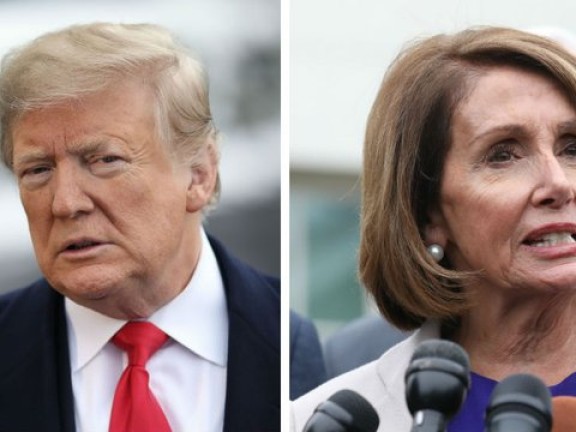The Hill Published Op-Ed by Thomas W. Ross on the Government Shutdown's Damage to Public Service

This article was originally published January 26, 2019 by The Hill. Mr. Ross is the president of the Volcker Alliance.
In a speech to the House of Commons in 1947, Winston Churchill said: “Many forms of government have been tried, and will be tried in this world of sin and woe. No one pretends that democracy is perfect or all-wise. Indeed, it has been said that democracy is the worst form of government except for all those other forms that have been tried from time to time.”
The flaws of our great American democratic experiment are mortifyingly on display, despite the recently announced three-week reprieve from the government shutdown.
In 2013, one of America’s greatest living public servants, former Federal Reserve Chairman Paul A. Volcker, established a nonpartisan, nonprofit organization, the Volcker Alliance, with the mission to advance effective management of government to achieve results that matter to citizens.
Volcker was motivated by a deeply held belief that the management and implementation of public policy demands heightened attention and respect. The shutdown dramatizes the need for greater recognition of the distinction Volcker makes between setting and executing public policy.
In America, public policy is, and should be subject to debate. Such debate is fundamental to our society and built into the design of the three branches of our government.
But such debate at the policy level — no matter how vigorous — should not bleed over to interfere with the government’s ability to implement policies that have already been agreed upon and passed into law. A single policy dispute should not pose an existential threat to our government!
It is deeply troubling that a dispute about a specific public policy has resulted in the prolonged suspension of thousands of daily, essential tasks that federal public servants carry out for the American people.
The votes and tax dollars of the American people entitle them to a government that is responsive to its citizens and accountable for delivering on its promises. Yet how can government effectively respond to the needs of its citizens or deliver on its promises if it is closed for business?
Simply put, the implementation of policy set forth by the legislative branch of government must be able to proceed. For our government to fulfill its public mandate, policy implementation needs to be considered sacrosanct — able to proceed without political interference unless such policy is changed in accordance with our democratic practices.
A prolonged government shutdown will have long and potentially unforeseen impact on our collective future. The government’s responsibilities are numerous and touch many aspects of the lives of all Americans.
In addition to the personal toll that the shutdown has exacted on federal employees and their families, it has also created an administrative backlog and undermined the government’s ability to anticipate and respond to a range of risks for the American people.
Beyond that, the shutdown has further eroded the confidence of the American people in our governing processes and our democracy.
One of my greatest concerns over the shutdown is that it could deter talented people, especially young people, from pursuing public service. We are already facing a public workforce crisis as federal, state and local governments will see a doubling of the percent of their workforce that is eligible to retire in the next five years.
Meanwhile, only 7 percent of the federal workforce is under the age of 30 compared to nearly 25 percent in the private sector.
Our nation needs a public sector workforce with the experience, preparation and commitment to ensure government delivers with excellence. To be served by an effective government, the American people need paths of public service to seem attractive.
I hope that current and future public servants will not be deterred from serving our country by this recent shutdown. I hope they somehow will envision a more perfect union, one in which government distinguishes matters of policy debate from the business of implementing established policy and delivers on promises made to the American people.
Thomas W. Ross is the president of the Volcker Alliance, which aims to advance effective management of government to achieve results that matter to citizens. He is president emeritus of the 17-campus University of North Carolina.

